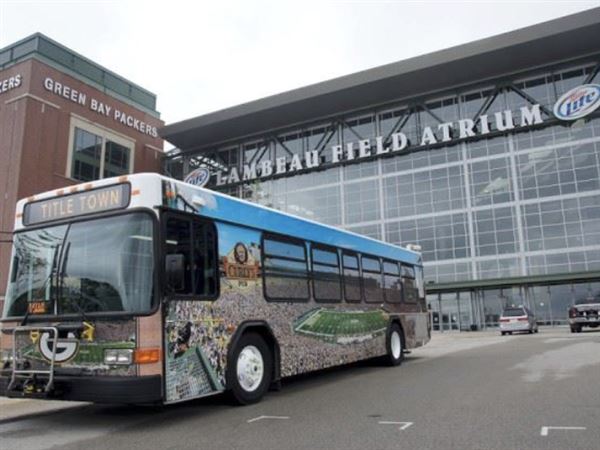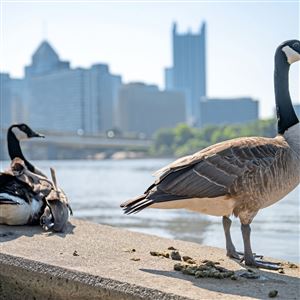Years of particularly cold and snowy Quebec winters have slowed the reproduction of migratory Canada geese.
Following recommendations set by the international Migratory Bird Conventions, the U.S. Fish and Wildlife Service’s annual conservation framework guided waterfowl hunting seasons in Pennsylvania that will drop the bag limit for migratory Canada geese in parts of the state.
Ross’s geese and Canada geese that travel the Atlantic Flyway nest throughout much of Quebec, especially along the eastern shore of Hudson Bay, Ungava Bay and the interior Ungava Peninsula. The birds winter from New England to South Carolina including Pennsylvania.
Following years of relatively stable breeding of Canada geese, the number of pairs fell from approximately 192,000 in 2016 to 112,000 in just two years — nearly a 42% decline. In addition, a very cold, late spring in 2018 left much of the Atlantic population breeding grounds covered with more than one foot of snow as late as June.
One poor year of productivity would not have a significant impact on the overall population.
But Canada and Ross’s geese that travel the Atlantic Flyway had shown sluggish reproduction in seven of 10 breeding seasons prior to 2018. That year’s snowfall caused nearly total reproductive failure in 2018.
As part of a hemispheric effort to rebuild the population, the Pennsylvania Game Commission reduced the harvest limit of migratory Canada geese in the state’s southeastern corner. Minor adjustments were made to additional goose and duck seasons throughout the rest of the state, according to the migratory game bird seasons schedule for 2021-22 announced last week.
For a full waterfowl season listing, visit the Pennsylvania Game Commission website.
Talking to hunters
Nate Huck, waterfowl and dove program specialist, said hunter surveys contributed to the season changes.
“Pennsylvania continues to monitor migratory game bird populations in cooperation with other wildlife management agencies across North America,” he said. “Information provided by hunters is essential to manage migratory game bird populations and support sustainable hunting opportunities through time.
“In 2020, we conducted a statewide comprehensive survey of our waterfowl hunters’ desires for season timing. With the results of this survey, and as a result of public comment on proposed seasons, we have modified a few season dates to better align with public preferences.”
One change from last year is a shift in duck seasons. In Northwest, North and South zones, the first segment will open a week earlier on Oct. 9, a move that may help to reduce some hunter crowding.
“We believe the earlier opening day will allow hunters to take advantage of earlier migrating birds such as blue-winged teal,” said Mr. Huck.
Other seasons will open a week later. The South Zone duck season will open Nov. 23 and run through Jan. 22, 2022.
“We have heard from many hunters in the South Zone they would like to see the season run later into the year. We felt shifting the season back to close on Jan. 22 allowed us to provide more late-season opportunities without the negative impacts that we might see with seasons closing at the end of January,” Mr. Huck said.
Additionally, the goose season in the state’s southeast Atlantic population zone will open Nov. 23 and close Nov. 26, reopen Dec. 24 and run through Jan. 22. This change, said Mr. Huck, would align the Atlantic population goose zone with the new South Zone duck season dates.
In the Northwest Zone, including the Pymatuning area, duck season will also be shifted.
“We took a week off the back end of the first segment and put it at the end of the second segment, so the season closes Jan. 8,” said Mr. Huck. “Many hunters in the Northwest Zone had expressed a desire to hunt later in the season and this change should provide that opportunity.”
The geese who stayed
Pennsylvania’s other Canada goose population, resident geese that don’t migrate, create social and hygiene problems in parks and along city waterways.
It’s an unnatural population created from the 1940s through the 1960s when the Game Commission stocked thousand of birds in an effort to expand goose hunting opportunities. The experiment worked — too well.
As intended, the birds took advantage of Pennsylvania’s relatively mild winters and stayed. But too many remained in areas that could not be safely hunted. The population exploded.
Despite a management goal of 150,000 resident Canada geese, the Game Commission estimates the state may hold some 300,000, double the number that resources and social tolerances can accommodate.
Throughout most of the state, the early resident Canada goose season opens Sept. 1. The late season in the Northwest Zone was shifted to accommodate the interests of Western Pennsylvania hunters.
“We heard from quite a few hunters interested in hunting the last week of February in this zone,” said Mr. Huck. “We shifted the third segment of the season back one week from the original proposed seasons, opening Feb. 4 and closing Feb. 26 as a result of these comments.”
First Published: April 30, 2021, 11:00 p.m.


















